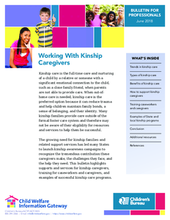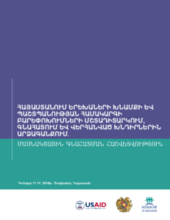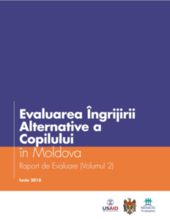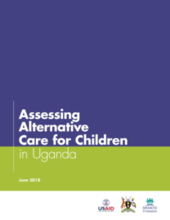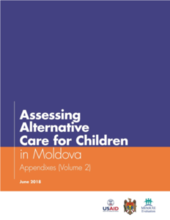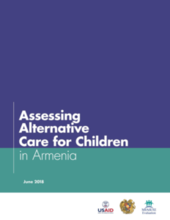Displaying 241 - 250 of 608
This article reviews developments in the Australian NSW child protection system which aim to reduce the number of children in state care.
The purpose of this systematic review is to compare the associations of kinship care and non-kinship care with children's mental health and to examine the factors associated with children's mental health in kinship care and non-kinship foster care.
This bulletin highlights supports and services for kinship caregivers, training for caseworkers and caregivers, and examples of successful kinship care programs.
This report, in the Moldovan lanugage, presents the findings of an assessment workshop aimed at informing action planning to address priority needs identified in alternative care for children in Moldova.
This report, in Armenian, presents the findings of an assessment workshop aimed at bringing together key stakeholders—decision makers, policy developers, service providers, civil society representatives, and donors—to assess and identify the main care reform areas in which action is needed.
This report, in the Moldovan langauge, presents the findings of an assessment workshop aimed at informing action planning to address priority needs identified in alternative care for children in Moldova.
This report presents the findings of an assessment workshop aimed at informing action planning to address priority needs identified in alternative care for children in Moldova.
This report presents the findings from an assessment workshop aimed at informing action planning to address high-priority needs identified in alternative care for children in Uganda.
This report presents the findings of an assessment workshop aimed at informing action planning to address priority needs identified in alternative care for children.
This report presents the findings of an assessment workshop aimed at bringing together key stakeholders—decision makers, policy developers, service providers, civil society representatives, and donors—to assess and identify the main care reform areas in Armenia in which action is needed.

